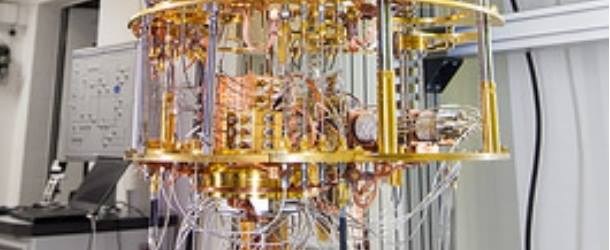‘Quantum Winter’ a Concern

(Nature.com) Although grand claims have been made about a looming revolution in computing, and private investment has been flowing into quantum technology, it is still early days. Nature surveys the positives and the nay-sayers in this article.
Researchers are still many thousands of qubitsaway from general-purpose quantum computers, ones that could do long-heralded calculations such as factoring large numbers. A team at Google has now reportedly demonstrated a quantum computer that can outperform conventional machines, but such ‘quantum supremacy’ is expected to be extremely limited.
Some researchers have raised the possibility that, if quantum computers fail to deliver anything of use soon, a quantum winter will descend: enthusiasm will wane and funding will dry up. “Quantum winter is a real concern,” Preskill says. But he remains upbeat, because the slow progress has forced researchers to adjust their focus and see whether the devices they already have might be able to do something interesting in the near future.
Innovations are provoking unexpected progress in conventional computing. All this activity is running alongside efforts to build bigger, more robust quantum systems. Aspuru-Guzik–a computer scientist at the University of Toronto, Canada, and co-founder of quantum-computing company Zapata Computing in Cambridge, Massachusetts–advises people to expect the unexpected. “We’re here for the long run,” he says. “But there might be some surprises tomorrow.”
In the era of NISQ computing, there is always a ‘but’. Zapata’s factoring algorithm, for instance, might never factor numbers faster than classical machines. No experiments have been done on real hardware yet, and there is no way to definitively, mathematically prove superiority.
Aspuru-Guzik is confident that something significant will happen soon–especially now that researchers can ‘dial in’ and try things out on the small-scale quantum computers and simulators made available by Google and IBM. This ease of access, he thinks, will be key. “You have to hack the quantum computer,” he says. “There is a role for formalism, but there is also a role for imagination, intuition and adventure. Maybe it’s not about how many qubits we have; maybe it’s about how many hackers we have.”


















